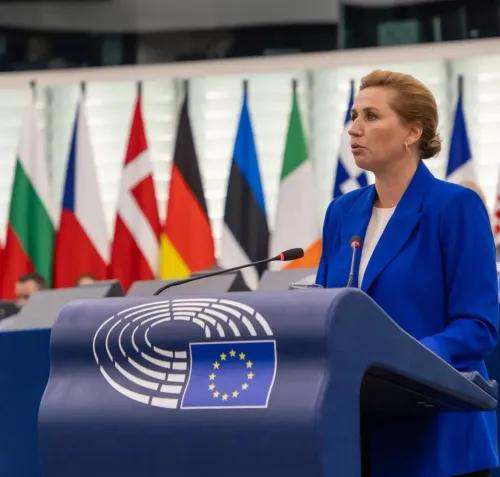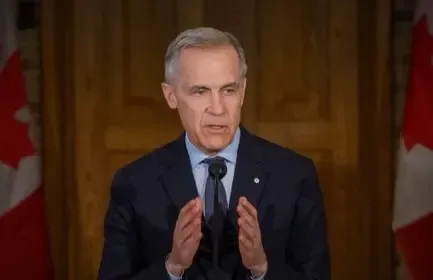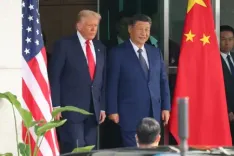Why is the IMF Optimistic About India's GDP Growth Forecast for 2025-26?

Synopsis
Key Takeaways
- The IMF has increased India's GDP growth forecast to 6.6% for 2025-26.
- Strong domestic consumption is a crucial factor driving this growth.
- US tariffs have not significantly impacted India's economic performance as anticipated.
- GST reforms are set to enhance domestic demand further.
- Global growth is expected to slow down, highlighting India's unique position.
New Delhi, Oct 14 (NationPress) The International Monetary Fund (IMF) has increased India's GDP growth projection to 6.6 percent for the fiscal year 2025-26, up from the previous estimate of 6.4 percent, despite the imposition of punitive tariffs by the United States on Indian exports.
This upward adjustment is attributed to the strong performance in the first quarter of the fiscal year, which outweighed the impact of the increased US effective tariff rates on Indian imports since July, as stated in the IMF's World Economic Outlook.
In the initial quarter of 2025-26, India recorded a remarkable GDP growth rate of 7.8 percent, driven primarily by robust private consumption.
The government's implementation of comprehensive GST reforms, including reduced tax rates on various consumer goods and services, is anticipated to further boost domestic demand. This momentum is expected to counterbalance the adverse effects on external demand for Indian products stemming from the US tariff hikes.
Additionally, the IMF's revised growth forecast for India closely follows the World Bank's recent increase of its growth projection for FY26 to 6.5 percent, up from 6.3 percent.
The IMF has also indicated that the growth rates for emerging markets and developing economies are likely to slow from 4.3 percent in 2024 to 4.2 percent in 2025 and further to 4 percent in 2026.
The report highlights that emerging markets, including India outside of China, are exhibiting strength due to specific domestic factors. However, it also notes a fragile outlook for these economies due to rising trade tensions and uncertainty regarding investment.
Last week, IMF Managing Director Kristalina Georgieva praised India as a critical growth engine for the global economy amidst shifting global growth dynamics.
She mentioned that global growth is projected to be around 3 percent in the medium term, a decrease from 3.7 percent before the pandemic, with China experiencing a steady decline while India emerges as a significant growth contributor.
Georgieva emphasized that decisive economic policies have been enacted, the private sector is adjusting accordingly, and the impact of US tariff challenges has been less severe than initially anticipated.
However, she cautioned that it is premature to celebrate, as global resilience has yet to be thoroughly tested, and concerning signs suggest that challenges may arise soon.









